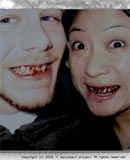不支持Flash
|
高考英语备考:介词考点易错点归纳
◆典型陷阱题分析◆
1.“You went late _______ the stadium yesterday evening, didn’t you?” “Yes, my wife was a little late _______ the supper.”
A. to, with B. for, with C. for, for D. at, for
【陷阱】容易误选 B 或D。
【分析】答案应选 A。第一空填to 比较好理解,因为此处的late为副词,用以修饰 go to the stadium 中的动词go;而第二句的 with 则是许多同学不容易想到的,相反,更多地可能是想到 for,现将两者区别如下:be late for表示做某事迟到,而be late with 表示做某事做晚了(=be late in doing sth)。比较:
We were late for dinner. 我们吃饭迟到了。
We were late with dinner [=in having dinner]. 我们吃饭吃得迟。
句中 my wife was a little late with the supper 的意思是“我妻子准备晚饭稍迟了一点”。
2. We were all worried over _______ you were sick.
A. that B. which C. what D. the fact that
【陷阱】容易误选 A 或 B。
【分析】答案应选 D。按英语习惯,除except, but 等极个别介词外,英语介词后通常不能直接跟 that 从句作宾语。遇此情况,通常是在 that 从句前加上 the fact,此时 the fact 用作介词宾语,而其后 that 从句则用作 the fact 的同位语。请看类似试题(答案选均D):
(1) They knew nothing about ______ he was a thief.
A. that B. which C. what D. the fact that
(2) She must face up to _______ she is no longer young.
A. that B. which C. what D. the fact that
(3) What he said at the meeting referred to _______ he was interested in the project.
A. that B. which C. what D. the fact that
(4) Their belief is proved by the fact that the death penalty prevents murder.
A. that B. which C. what D. the fact that
(5) The writer is not satisfied with _______ buses are too crowded.
A. that B. which C. what D. the fact that
3. Sometimes our opinions differ _______ what we choose to observe and how we deal with what we’ve observed
A. which B. since C. because D. because of
【陷阱】容易误选C。因为按英语语法习惯,because是连词,其后接句子;而because of是复合介词,其后接名词、代词或动名词等。
【分析】此题答案选D。because 作为从属连词,主要用于引导原因状语从句,既然是引导一个从句,也就是说它的后面不能再连用“引导词”。如:
He was angry because we were late. 他很生气因为我们迟到了。
They can’t have gone out because the light is on. 他们不可能出去了,因为灯还亮着。
Bread is cheap in this supermarket because they bake it themselves.这家超市的面包是自制的,所以便宜。
假若,一个从句已经有了自己的“引导词”,那么它前面就不宜再用 because 这个连词了。如:
She got angry because of what you said. 她哭是因为你说的话。
句中的 what 相当于 the thing that,也就是说 what you said 相当于 the thing that you said。其中 the thing 用作 because of 的宾语,而that you said 为修饰 the thing 的定语从句。
He lost his job because of how he treated his boss. 他因为对老板的态度(不好)而丢了工作。
句中的 how 相当于 the way in which,也就是说 how he treated his boss相当于 the way in which he treated his boss。其中 the way 用作 because of 的宾语,而in which he treated his boss 为修饰 the way 的定语从句。
4. “How long have you been an actor?” “_______ 1995, when I graduated from college.”
A. After B. In C. From D. Since
【陷阱】几个干扰项均有可能误选。
【分析】最佳答案为D。若仅从答句来看,四个答案都说得过去。但若结合问句的语境以答案应选D,因为其余三选项填入空格均不能回答问句所提出的问题。比较:
“When did you became an actor?” “_______ 1995, when I graduated from college.”
A. After B. In C. From D. Since
此题选B,因为问句问的是when(何时),所以用 in 1995 来回答便顺理成章。
请再看两题:
(1)“How long have you worked on the farm?” “____ the end of last year.”
A. In B. By C. At D. Since
答案选D,用 since the end of last year 回答 how long,即问句问“工作了多久”,答句说“自去年年底至今”。
(2)“How long will you work on the farm?” “____ the end of next year.”
A. In B. By C. At D. Since
答案选B,问句问“将工作多久”,答句说“工作明年明底”。
(3)“When did you leave the farm?” “____ the end of last year.”
A. In B. By C. At D. Since
答案选C,问句问“何时离开”,答句说“去年明底离开”。
5. Don’t be angry _______ me for not having written. I was really too busy.
A. about B. with C. to D. for
【陷阱】容易误选B。根据汉语的“对某人生气”,将其中的“对”直译为to。
【分析】最佳答案为 B。按英语习惯,要表示对某人生气,通常用 be angry with [at] sb,要表示对某事生气,通常用 be angry at [about] sth(在美国英语中也用 be angry with sth,但不说 be angry with sb)。比较以下表达,其中的“对”也不用to来翻译:
你对这些安排感到满意吗?
误:Did you feel satisfied to the arrangements?
正:Did you feel satisfied with the arrangements?
老师应该对他的学生严格要求。
误:Teachers should be strict to their students.
正:Teachers should be strict with their students.
6. In those days, we had no phones, so we have to keep in touch _____ writing often.
A. with B. of C. on D. by
【陷阱】容易误选A。根据 keep in touch with (与……保持联系)这一常用搭配推出。
【分析】正确答案是D。by 在这里表示方式,by writing 意为“通过写信”,全句意为“我们通过经常写信保持联系”。请再看几例(均与介词搭配有关):
(1) We’ve talked a lot _______ films. How _____ television now?
A. of, with B. with, towards
C. about, about D. for, about
此题不要受 a lot of的影响而误选A。若第一空选 of,a lot of cars 即为动词 talk 的宾语,但实际上动词 talk 是不及物动词,不能后接宾语。最佳答案应是C,句中的a lot是修饰动词 talked 的状语,talk about才是一个动词短语。全句意为“我们对电影已谈了不少,现在谈谈电视怎么样?” What about…意为“……怎么样”,用于征求意见。
(2) We all regarded the poor old man ____sympathy.
A. as B. with C. of D. by
看到句中的 regard 和选项中的 as,常容易联想到 regard … as … (把……当作……)这一搭配,从而断定此题应选A。但这是不正确的,原因是将此搭配套入原句,句子意思不通。正确答案是B,句意为“我们大家都很同情这位老人”。
更多高考信息请访问:新浪高考频道 高考论坛 高考博客圈 高考贴吧
特别说明:由于各方面情况的不断调整与变化,新浪网所提供的所有考试信息仅供参考,敬请考生以权威部门公布的正式信息为准。





